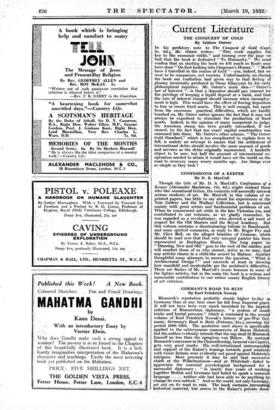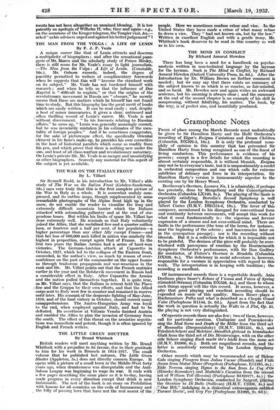GERMANY'S ROAD TO RUIN By Karl Friedrich Nowak
Bismarck's reputation probably stands higher to-day Germany than at any time since his fall front Imperial It will not have been very much tarnished by the impli , • criticism of Bismarekian diplomacy, " a system of ems tricks and brutal pressure," which is contained in the ,se volume of Karl Friedrich Nowak's history of pre-War many, Germany's Road to Ruin• (Putnam, 21s.), covering th period 1890-1905. The quotation used above is specifically applied to the subterranean manoeuvres of Baron Holstein,, but the author evidently intends that the cap shall fit Bismar himself no less than the egregious von Billow. By contrast Bismarck's successor in the Chancellorship, General von Capteij gets very good marks. His well-intentioned statesmanslii and support of the Kaiser's leanings towards good relatio with Great Britain were evidently not proof against Holstein N' intrigues. More precisely it may be said that successive chiefs at the Wilhelmstrasse—and at Whitehall—failed to appreciate the essential psychological background for a successful diplomacy : " in nearly four years of working together British and Germans had failed to speak a commoh language . . . . neither side had been able to do anything Mei, change its own outlook." And so the world, not only Germarq) , set out on its road to ruin. The book contains interestini historical material, but access to the Kaiser's private doca- meads bay not been altogether an unmixed blessing. It is too patently an apologia of Wllhehn /lotto; time and again,-e.g., on, the occasions of the Kruger telegram, the Tangier visit, Stc..— acted "as his advisers urged and against his better judgement" I







































 Previous page
Previous page